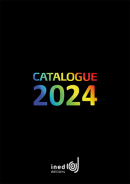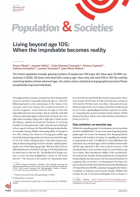
La rédaction non-sexiste et inclusive dans la recherche : enjeux et modalités pratiques.
Collection : Documents de travail
n° 231, 2017
Writing is a crucial component of scientific research, one of great symbolic importance. In some disciplines it is framed by heavy formal conventions and constraints (such as the IMRAD format). Researchers and research institutes are increasingly called upon to eschew sexist stereotypes and any suggestion of inequality between men and women in their publications and communication work. How can they best respond to this new concern? Especially given the resistance to change: the belief that in French the masculine grammatical gender can function as a sort of « neuter » (a feature French does not have); a reluctance to accept new constraints; and the view that proposed changes in language practice unduly complicate reading and comprehension.
Despite the consensual objective of sexual equality, writing and communication raise questions and oppositions that are at once theoretical and practical. There are many different communication vectors (websites, publications for the general public, scientific works and journals), and at INED most of them operate on a bilingual French and English basis. Those two languages do not have the same grammatical characteristics. Moreover, a proportion of scientific research is written up directly, and in some cases only, in English. Inclusive, non-sexist language is making headway at INED, thanks to a strong initial impetus there. Taken as a field for experimentation and observation, this particular research institute is in a good position to highlight scientifically acquired knowledge on gender issues in linguistics and to determine clear new language forms and practices and how researchers can best apply and appropriate them as well as refute objections to them.











